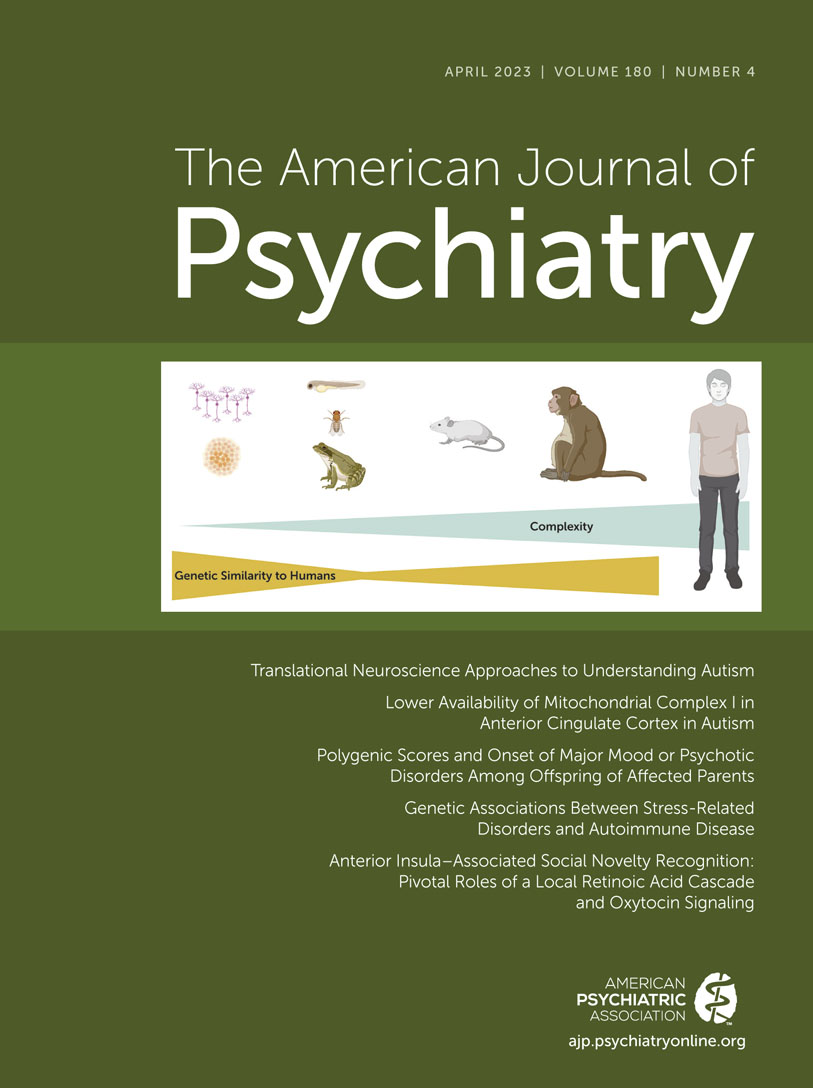Polygenic Scores and Onset of Major Mood or Psychotic Disorders Among Offspring of Affected Parents
Abstract
Objective:
Family history is an established risk factor for mental illness. The authors sought to investigate whether polygenic scores (PGSs) can complement family history to improve identification of risk for major mood and psychotic disorders.
Methods:
Eight cohorts were combined to create a sample of 1,884 participants ages 2–36 years, including 1,339 offspring of parents with mood or psychotic disorders, who were prospectively assessed with diagnostic interviews over an average of 5.1 years. PGSs were constructed for depression, bipolar disorder, anxiety, attention deficit hyperactivity disorder (ADHD), schizophrenia, neuroticism, subjective well-being, p factor, and height (as a negative control). Cox regression was used to test associations between PGSs, family history of major mental illness, and onsets of major mood and psychotic disorders.
Results:
There were 435 onsets of major mood and psychotic disorders across follow-up. PGSs for neuroticism (hazard ratio=1.23, 95% CI=1.12–1.36), schizophrenia (hazard ratio=1.15, 95% CI=1.04–1.26), depression (hazard ratio=1.11, 95% CI=1.01–1.22), ADHD (hazard ratio=1.10, 95% CI=1.00–1.21), subjective well-being (hazard ratio=0.90, 95% CI=0.82–0.99), and p factor (hazard ratio=1.14, 95% CI=1.04–1.26) were associated with onsets. After controlling for family history, neuroticism PGS remained significantly positively associated (hazard ratio=1.19, 95% CI=1.08–1.31) and subjective well-being PGS remained significantly negatively associated (hazard ratio=0.89, 95% CI=0.81–0.98) with onsets.
Conclusions:
Neuroticism and subjective well-being PGSs capture risk of major mood and psychotic disorders that is independent of family history, whereas PGSs for psychiatric illness provide limited predictive power when family history is known. Neuroticism and subjective well-being PGSs may complement family history in the early identification of persons at elevated risk.



